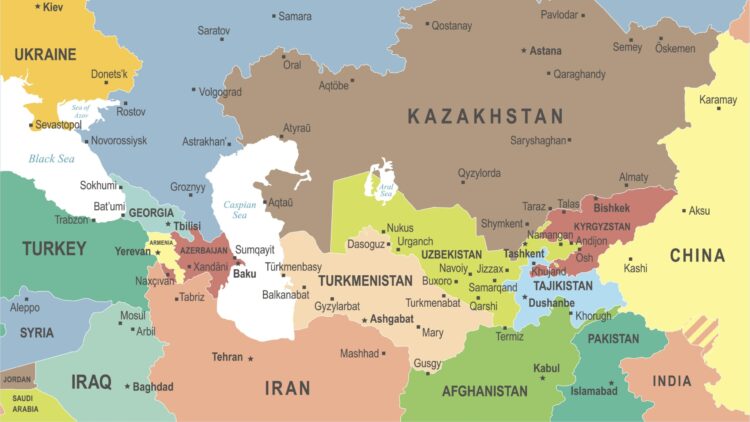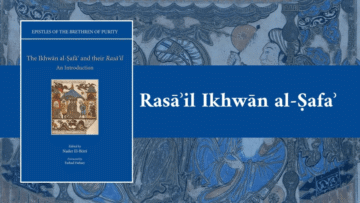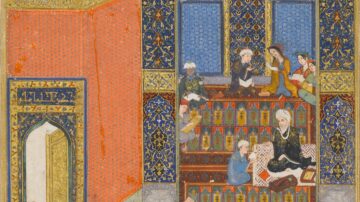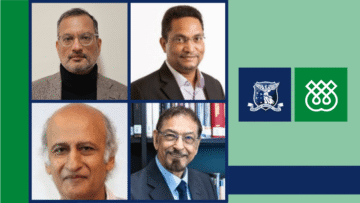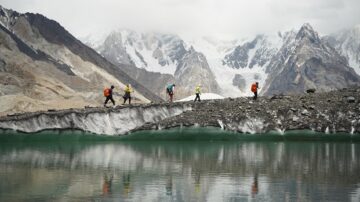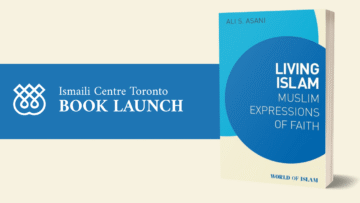Historical and Contemporary Migrations of Central Asian Muslims
History, Culture, and Identity
Central Asian Muslim migrations was the focus of a two-day conference hosted by The Institute of Ismaili Studies on 3–4 April 2024 at the Aga KhanA title granted by the Shah of Persia to the then Ismaili Imam in 1818 and inherited by each of his successors to the Imamate. Centre, London, which was also livestreamed. Organised by the Central Asian Studies Unit, the event brought together international and local scholars to examine the regional and transnational migrations of Central Asian Muslims.
The conference traced movements spanning the medieval centuries to the present, exploring how these migrations have shaped cultural, social, and religious identities over time. It also highlighted the transformations experienced by Central Asian migrants in modern contexts through colonial encounters, the processes of integration into their host societies, their resultant educational trajectories, and the efforts made to retain the cultural continuity of diasporic communities. Keynote speaker Dr Mohamed Keshavjee delivered an address on the quest for identity as a human instinct, followed by panels on themes ranging from migration during the colonial period, the challenges of integration, educational experiences, and the cultural continuity of diaspora communities.
Welcome and Opening Remarks
Zayn Kassam, Director, The Institute of Ismaili Studies
Hakim Elnazarov, The Institute of Ismaili Studies
Keynote Address
The Perennial and Elusive Quest for Identity: An Understandable Human Instinct
Mohamed M. Keshavjee, The Institute of Ismaili Studies
In his keynote, Dr Keshavjee reflected on the evolving nature of identity in the context of migration and displacement. Drawing on experiences of twice-displaced Indian communities in Africa, Afghan refugees, and Central Asian IsmailisAdherents of a branch of Shi’i Islam that considers Ismail, the eldest son of the Shi’i Imam Jaʿfar al-Ṣādiq (d. 765), as his successor. after the Soviet collapse, he showed how culture, faith, and memory help preserve identity even in upheaval. He argued that identity is layered and fluid, continually reshaped by history and circumstance, and concluded that the search for belonging is an ongoing human quest.
Explore panels and watch sessions
Chair: Yahia Baiza
- The ‘Story of Arrival’: Migration, Settlement, and Identity Formation in Shughnan, Badakhshan
Nourmamadcho Nourmamadchoev, The Institute of Ismaili Studies, UK - Trans-Regional Mobility and Central Asian Connections in Medieval South Asia
Kashshaf Ghani, Nalanda University, India - Dynamism and Identity: The Wakhi Settlers of South Xinjiang
Amier Saidula, The Institute of Ismaili Studies, UK
Chair: Abdulmamad Iloliev
- Migration and Displacement of the Central Asian Mountain Communities during the Colonial Period
Hakim Elnazarov, The Institute of Ismaili Studies, UK - Paper Borders, Boundaries, and Bazaars in Colonial Central Asia
Malika Zehni, PhD student, University of Cambridge, UK - Migration Processes in Central Asia in the 19th Century: The Case of the Khanate of Khiva Nizomiddin Gulboev, Academy of Sciences of Uzbekistan, Republic of Uzbekistan
Chair: Kashshaf Ghani
- Ismaili Muslim Refugees from Afghanistan in Canada: Their Settlement and Identities
Mir Baiz Khan, Independent scholar, Canada - Migration and its Challenges for Central Asian Muslims in Russia: A Case Study of the Tajik Labour Migrants in Ekaterinburg
Abdulmamad Iloliev, University of Central Asia, Tajikistan - The Repatriation of Afghan Migrants from Pakistan and its Impact on Pakistan and Afghanistan: A Critical Analysis
Khurshid Sana Khan, Independent scholar, UK
Chair: Amier Saidula
- Back to the New Land: The Return of Peasant Refugees to Sovietised Eastern BukharaA city in modern-day Uzbekistan, Central Asia, known for its Islamic artistic and architectural heritage. (mid-1920s)
Isabelle Linais, Sciences Po Centre for History (CHSP), France - Migration and Community Building among the Ismailis of Qumsangir, Tajikistan
Sultonbek Aksakolov, University of Central Asia, Tajikistan - The Crisis of Humanities in the View of Labouring Tajik Poets in Russia
Yan Minjia, PhD student, Moscow State University, Russia
Chair: Hakim Elnazarov
- Immigration and Muslim-Jewish Relations: Immigrants from Central Asia and the Caucasus in Israeli ‘Mixed’ Jewish-Arab Cities
Chen Bram, Hebrew University of Jerusalem, Israel
Uri Rosenberg, Heidelberg University, Germany - At Home but without a Homeland: Tales of Migration of Afghan Ismailis in Germany
Yahia Baiza, The Institute of Ismaili Studies, UK - Safeguarding Afghanistan and its People. Displaced Afghan Migrants in London: Representing the Lost and Missing Narratives in Search of Peace
Assiya M. Amini, PhD student, University of London, UK
Chair: Zamira Dildorbekova
- The Integration of Tajik Labour Migrants into Russian Society through the Provision of Education: A Case Study of the Regional Public Organisation (RPO) ‘Noor’ in Moscow
Tohir Kalandarov, Russian Academy of Sciences, Russia - Post-Soviet Immigrant and Refugee Educational Experiences in Canada: Challenges, Opportunities, and Implications for Policy and Practice
Sarfaroz Niyozov, OISE, University of Toronto, Canada
Stephen Bahry, OISE, University of Toronto, Canada
Max Antony-Newman, OISE, University of Toronto, Canada
Chair: Chen Bram
- Bridging Worlds: The Impact of Financial and Social Remittances Sent Back by the Afghan Diaspora on the Evolution of Social Values and Cultural Concepts in the Country of Origin
Abdul-Hakim Hamidi, National Institute for Oriental Languages and Civilisations (INALCO), France - Why a Mother Tongue Matters: The Ethnocultural Heritage of Pamiri-Speaking Communities in their Homeland and in their Diaspora
Leyli Dodykhudoeva, Russian Academy of Sciences, Russia - Nostalgia in a Time of Extended Mobility: Remembering and Reimagining Home in the Tajik-Ismaili Diaspora in Russia
Guldastasho Alibakhshov, The Institute of Ismaili Studies, UK

